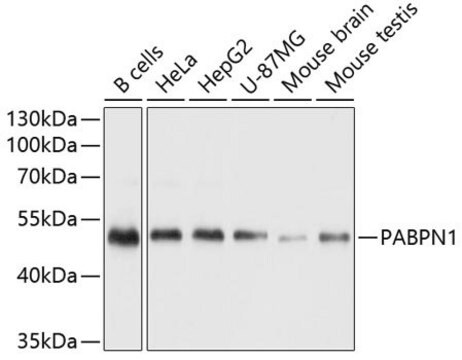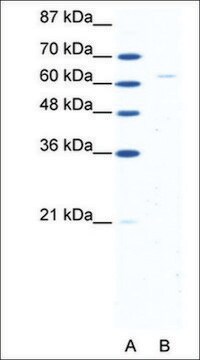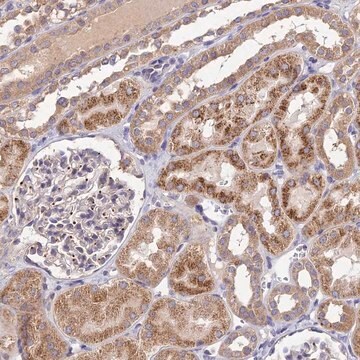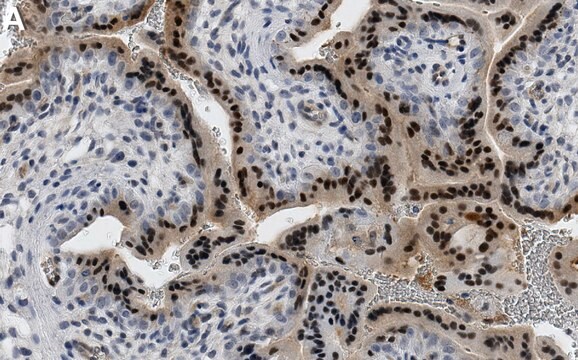MABN641
Anti-TMEM16B Antibody, clone 7H10
clone 7H10, from mouse
Synonym(s):
Anoctamin-2, Transmembrane protein 16B
About This Item
Recommended Products
biological source
mouse
Quality Level
antibody form
purified antibody
antibody product type
primary antibodies
clone
7H10, monoclonal
species reactivity
mouse, human
technique(s)
immunocytochemistry: suitable
immunohistochemistry: suitable
western blot: suitable
isotype
IgG1κ
NCBI accession no.
UniProt accession no.
shipped in
wet ice
target post-translational modification
unmodified
Gene Information
human ... ANO2(57101)
General description
Immunogen
Application
Neuroscience
Developmental Signaling
Immunocytochemistry Analysis: A representative lot detected TMEM16B in mouse retina cells (Stohr, H., et al. (2009). The Journal of Neuro. 29(21):6809-6818).
Quality
Imunnohistochemistry Analysis: A 1:50 dilution of this antibody detected TMEM16B in mouse retina tissue.
Target description
Physical form
Storage and Stability
Other Notes
Disclaimer
Not finding the right product?
Try our Product Selector Tool.
Storage Class
12 - Non Combustible Liquids
wgk_germany
WGK 1
flash_point_f
Not applicable
flash_point_c
Not applicable
Certificates of Analysis (COA)
Search for Certificates of Analysis (COA) by entering the products Lot/Batch Number. Lot and Batch Numbers can be found on a product’s label following the words ‘Lot’ or ‘Batch’.
Already Own This Product?
Find documentation for the products that you have recently purchased in the Document Library.
Our team of scientists has experience in all areas of research including Life Science, Material Science, Chemical Synthesis, Chromatography, Analytical and many others.
Contact Technical Service








